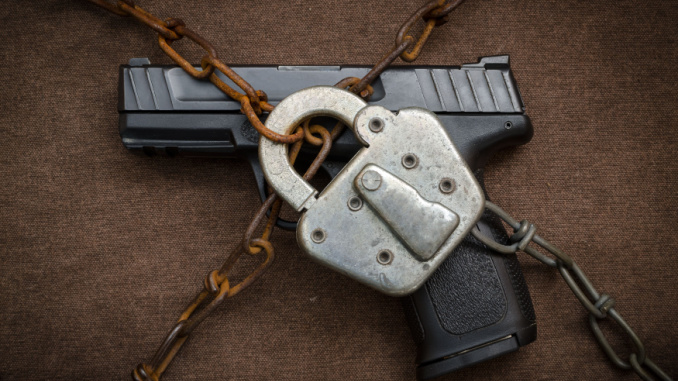
by Matthew Holloway | Jan 12, 2025 | Economy, News
By Matthew Holloway |
The Town of Gilbert is the target of a lawsuit by the Goldwater Institute on behalf of the Home Builders Association of Central Arizona and a local property owner, Jonathan Barth, for allegedly violating the Arizona Constitution which bans tax increases on “services.”
According to Goldwater, the tax increase imposed by the Town of Gilbert includes “many types of business that do not produce tangible goods, such as advertising, photography, utilities, hotel/lodging, and construction.”
Goldwater is challenging two of the tax increases in particular: on homebuilding and short-term rental properties.
As noted in the text of the lawsuit, the Arizona Constitution prohibits “any county, city, town, municipal corporation, or other political subdivision of the state, or any district created by law” from creating any new or increasing any existing transaction-based taxes on the “privilege to engage in, or the gross receipts of sales or gross income derived from, any service performed in this state.”
The new tax ordinance in question, per the Town of Gilbert’s website, imposes a 0.5% increase in the existing sales tax and creates a “use tax” to be “paid for by residents and businesses when purchases are made online with out-of-state vendors who do less than $100K of sales in Arizona per year.”
The lawsuit explains that, “As a result of the Ordinance, individuals, businesses, and taxpayers, including Plaintiff Jonathan Barth, who engage in the rental or lease of real property, including for transient lodging, will pay a higher tax rate for the services they perform. Additionally, individuals, businesses, and taxpayers that engage in general contracting services, including the members of Plaintiff Home Builders Association of Central Arizona (“HBACA”), will pay a higher tax rate on the services they perform.”
Barth, an educator and father of five, will be impacted because he earns supplemental income by managing his detached bungalow as a rental for short-term tenants. He told Goldwater, “This tax hike makes it all the more difficult to make ends meet in Gilbert.”
Former Mayor Brigette Peterson and all of the members of the Town Council are named as defendants in addition to the town itself.
The town allegedly intends to use the projected $55 million yield of this new tax for “Critical Infrastructure Projects,” adding that “Time is of the essence as many of Gilbert’s services are over capacity and new infrastructure is needed.”
The Goldwater Institute has found however, that these “Critical Infrastructure Projects,” include pickleball courts, splash pads, a ropes course, and a “statement” bridge.
The Home Builders Association of Central Arizona (HBACA) told Goldwater that the new taxes will result in increased construction costs in the town as well. HBACA CEO Jackson Moll warned, “Gilbert officials are trampling on their own constituents’ rights with no regard for the consequences their illegal actions will have on taxpayers and homebuyers. The Arizona Constitution is clear: increasing taxes on services, including on construction contracting, is unlawful.”
As previously reported by AZ Free News, the Goldwater Institute pursued a similar action against the Town of Payson in September when the Town Council decided to incur a $70 million debt via a bond measure without a public referendum.
Matthew Holloway is a senior reporter for AZ Free News. Follow him on X for his latest stories, or email tips to Matthew@azfreenews.com.

by Matthew Holloway | Jan 11, 2025 | News
By Matthew Holloway |
A report released by the Arizona Child Fatality Review Team (CFRT) has generated severe backlash from Arizona State Representatives Quang Nguyen and Selina Bliss, who serve as Chair and Vice-Chair of the House Judiciary Committee. The backlash came after the CFRT made the blatant unconstitutional recommendation to “remove all firearms in households with children,” claiming that “the presence of firearms in a household increases the risk of suicide among adolescents.”
According to a press release from the Arizona House of Representatives, Reps. Nguyen and Bliss penned a letter to Jennie Cunico, Cabinet Executive Officer of the Arizona Department of Health Services (ADHS), voicing in the strongest possible terms their objections to the CFRT’s report.
In their letter, Nguyen and Bliss wrote:
“We are appalled that the CFRT, speaking on behalf of the Arizona Department of Health Services, is actually advocating for stripping Arizonans of their Second Amendment rights in their own homes. This radical proposal is reminiscent of New Mexico Governor Michelle Lujan Grisham’s 2023 gun control order, which attempted to prohibit carrying of firearms in public for self-defense. You may recall that Governor Grisham’s order—accurately characterized as ‘insanely unconstitutional’ and ‘outrageous’—was swiftly blocked in court.
“The CFRT’s ‘do something’ approach to child-fatality legislation would not only violate the constitutional rights of millions of Arizonans; it is also irrational from a policy perspective. The CFRT’s Report notes that 31 children drowned in 2023 and that the majority of these deaths occurred in pools and hot tubs. Yet the CFRT does not recommend the elimination of pools and hot tubs. Instead, the CFRT advocates for common-sense ideas: ‘close, constant supervision of children when around water, increased availability and affordability of swim lessons for children, and proper pool enclosures.’
“Effective policy solutions—even for problems that are difficult and complex—must be designed to fully protect constitutional rights and liberties. We urge you to direct the CFRT to reconsider its unjustified attack on the Second Amendment and amend its Report.”
“Proposals to strip citizens of their firearms are not only unconstitutional but also lack common sense,” Nguyen explained. “While the report suggests reasonable safety measures for other risks, such as drowning, the CFRT overreaches by advocating for the elimination of firearms entirely from homes with children.”
“Our state should focus on education and safe practices, not on extreme measures that undermine individual liberties,” Representative Bliss agreed. “We stand firm in defending the Second Amendment rights of Arizona families.”
In a later post to X, Nguyen acknowledged an op-ed from AZCentral’s Laurie Roberts criticizing him for his stance writing, “Anytime Roberts writes about my work negatively, I know I’m doing the right thing. I’m very sure she’s okay with abortion of innocent children.”
Roberts suggested the report’s call to remove guns from Arizona homes does not violate the Constitution and “goes on to recommend that ‘parents of adolescents should remove all guns from their homes, especially if there is a history of mental health issues or substance abuse issues.’ This because more children are dying by suicide, with close to half killing themselves with guns.”
However, as the Representatives point out, the language explicitly used by the report is as follows:
“Since the CFRP determined that access to guns was the biggest risk factor for firearm deaths, CFRP believes that the most effective way to prevent firearm-related deaths in children is to remove all firearms in households with children because the presence of firearms in a household increases the risk of suicide among adolescents.”
The recommendation of the CFRT is direct, unambiguous, and lacks the nuance suggested by the local columnist.
The CFRT is comprised mostly of appointees nominated by the state officers who were in turn appointed or nominated by Democrats Governor Katie Hobbs and Attorney General Kris Mayes.
Matthew Holloway is a senior reporter for AZ Free News. Follow him on X for his latest stories, or email tips to Matthew@azfreenews.com.

by Matthew Holloway | Jan 9, 2025 | News
By Matthew Holloway |
During a special meeting on January 6th, the Maricopa County Board of Supervisors were sworn into office, and the new Chairman of the Board, Thomas Galvin, was voted into office unanimously by his peers. According to a press release, the newly elected Chairman Galvin addressed the Board and the county, proposing several new initiatives to “bring increased prosperity and security,” to Maricopa County.
Galvin told the meeting, “We aim to be a board of action, and I aim to deliver a consequential chairmanship that will achieve substantial results.”
Galvin, who represents District 2, acknowledged the historic note of his election as Maricopa County’s first Latino Chairman three years after becoming the first Latino Republican elected to the Board.
During his remarks, Galvin set out his priorities for the Board as being: Safety, the Jail Excise Tax, the Melendres Consent Decree impacting the Maricopa County Sheriff’s Office, Economic Development, Housing, Transportation, Water, Elections, and County Staffing.
One standout moment occurred when Galvin stressed his desire to bring back the NHL to the valley following the departure of the Coyotes from Glendale.
“I’ve been talking to Bettman,” he told reporters, referring to NHL Commissioner Gary Bettman.
Regarding elections, Galvin broke with many Republicans critical of Arizona’s process stating, “For anyone still going on about widespread fraud or stolen elections, stop it. To continue to do so is destructive and irresponsible.”
He added, “But what I do appreciate are the people who want to make a good system better. Supervisors Lesko, Brophy McGee, and Stewart each have told me they would like to see Maricopa County examine ways it can improve its elections procedures and provide even more transparency to voters. I agree with them!”
Galvin followed with a brief rundown of reforms:
“My ‘95:1 plan’ would ensure 95% of all votes are tabulated by the end of election night. People want election results faster, and when misinformation has more time to fester, it breeds mistrust in our system.
Our state’s inadequate election laws place the burdens on counties and when voters get frustrated by the process, some denounce our election workers and volunteers who are blameless here. I don’t want our election staff to endure that kind of abuse ever again. They work too hard to have to deal with that nonsense.
Here’s how the legislature and the governor can support our election workers and serve voters in a better fashion:
• First, establish a cutoff date for early ballot drop offs
• Second, use government buildings to host polling sites
• Third, eliminate emergency voting for the Saturday and Monday before election day and allow everyone to utilize in-person voting on those days.
Expanding onsite tabulation on Saturday and Monday before election day solves two challenges regarding access to voting and the speed of results.”
In addition to Galvin’s election as Chairman, three new members of the Board were sworn in with Republican Supervisors Mark Stewart (District 1), Kate Brophy McGee (District 3), and former Congresswoman Debbie Lesko (District 4) joining the five-member body. Supervisor Brophy McGee was appointed to serve as Vice Chair.
“This is a place where I believe I can make a difference on kitchen table, quality of life issues like cost of living, jobs, and public safety,” Brophy McGee said. “I know there are good people and programs already in place at Maricopa County, but there’s so much work to be done to get drugs like fentanyl off our streets, address the homelessness and affordable housing crisis plaguing our county, and ensure our region grows in a smart way. I can’t wait to get started.”
Lesko told the gathered meeting, “Thank you to the great people of the West Valley for your continued support! I’m excited to represent you as your Maricopa County Supervisor. I promise to work hard for you, just as I have done as your U.S. Congresswoman and Arizona State Legislator. My priorities include public safety, election integrity and ensuring your taxpayer dollars are used wisely.”
Stewart similarly noted, “I will collaborate with the community and staff to ensure our county government is transparent and delivers consistent, high-quality services at a fair cost. Working together we can build a thriving environment where families and businesses succeed, and government serves as a reliable partner in our shared future.”
Matthew Holloway is a senior reporter for AZ Free News. Follow him on X for his latest stories, or email tips to Matthew@azfreenews.com.

by Matthew Holloway | Jan 9, 2025 | News
By Matthew Holloway |
In a Monday press release, Arizona State Representative Lupe Diaz announced that he and his fellow House Republicans will honor the dedication and sacrifice of law enforcement officers across the state and nation on National Law Enforcement Appreciation Day, January 9th. Diaz and the House GOP are inviting all Arizonans to join them.
In the release Diaz said, “In a time when some mismanaged cities and misguided politicians are still pushing to defund law enforcement, Arizona House Republicans stand firmly and proudly with our law enforcement professionals.”
“We deeply appreciate – and will continue to support – the brave men and women who work to protect our families and maintain public safety in our communities.”
The release explained that on National Law Enforcement Appreciation Day the legislators are leading an effort to bring forth a visible and tangible expression of Arizona’s support for its Law Enforcement Community with the public encouraged to “show their support by thanking an officer, wearing blue, or sharing messages of appreciation on social media using the #LawEnforcementAppreciationDay hashtag.”
As reported by The Officer Down Memorial Page, four Law Enforcement Officers lost their lives in the line of duty in 2024:
- Officer Zane Tristan Coolidge, 29, of the Phoenix Police Department was shot and killed by a fleeing felon with multiple convictions on September 6th
- Detective Ryan So, 38, of the Scottsdale Police Department lost his life in a tragic accidental discharge on June 13th
- Gila River Tribal Police Officer Joshua Briese, 24, was shot and killed responding to a disturbance call on June 1st. He was still in field training.
- Tucson Police Lead Officer Adam Buckner, 31, was struck and killed in a vehicle collision while responding to a call for service on March 31st.
Through the Arizona State Troopers Association (ASTA), those wishing to show their support can also purchase post cards for officers they wish to thank and appreciate. On the organization’s website, the ASTA says, “Hands down the biggest compliment you can give is to let the officer’s supervisor know that you appreciated whatever the officer did. (The best way is a written note to the chief executive). Why? Because police officers rarely are ever thanked or told that they did a great job.”
The State Troopers Association also recommended penning a letter to the editor of your local newspaper thanking officers for their community dedication and/or putting together a treat of cookies or a dozen doughnuts from your local bakery and leaving them with the department with a thank you card.
Representative Diaz represents the 19th Legislative District and chairs the House Land, Agriculture & Rural Affairs Committee.
Matthew Holloway is a senior reporter for AZ Free News. Follow him on X for his latest stories, or email tips to Matthew@azfreenews.com.

by Matthew Holloway | Jan 8, 2025 | News
By Matthew Holloway |
Congressman Abe Hamadeh (R-AZ) has been sworn in along with his fellow freshmen members of the U.S. House of Representatives. But before even taking the oath of office, Hamadeh garnered recognition as one of the “rising stars” in American policitcs “expected to emerge in 2025.”
In a report released on the last day of 2024, Fox News’ Andrew Mark Miller pronounced Hamadeh as a rising star alongside fellow Republicans Vice President-elect JD Vance, Rep. Byron Donalds of Florida, Senator Bernie Moreno of Ohio, and Vivek Ramaswamy. He also gave the same recogniation to Democrats like Governors Gavin Newsom of California, Josh Shapiro of Pennsylvania, and Wes Moore of Maryland, along with Rep. Pat Ryan of New York and Senator Angela Alsobrooks of Maryland.
Hamadeh, a 33-year-old son of Syrian immigrants, retired Army Reserve Captain & Intelligence Officer, and former Maricopa County Prosecutor enjoyed a massive resurgence in Arizona politics after a razor thin-280 vote defeat in the 2022 race for state Attorney General, a result mired in controversy and serious allegations of disenfranchisement and mismanagement.
He arose victorious in a raucous 8-way primary challenge for the District 8 Congressional seat that saw an unprecedented double-endorsement by President-elect Donald Trump, who supported both Hamadeh and runner-up Blake Masters.
In the end, Hamadeh outperformed the rest of the AZGOP candidates on his way to soundly defeating his Democrat opponent Gregory Whitten in the November General Election.
In a statement about his powerful committee assignments, Hamadeh told Fox News Digital, “I am honored to serve on the Veterans Affairs and Armed Services Committees—two assignments I intentionally sought because our veterans and military deserve leaders who will fight for them. Putting America first starts with defending our homeland and honoring our veterans and their families.”
“Throughout my campaign, I made a promise to bring veterans’ issues to the forefront of our national priorities, and today, I am proud to fulfill that promise,” he added. “This is a ‘promises made, promises kept’ moment as I lead the charge to honor our military leaders, support those who have served our nation, and ensure our veterans receive the care and respect they’ve earned. Serving those who served us is not just my duty—it’s a privilege.”
Matthew Holloway is a senior reporter for AZ Free News. Follow him on X for his latest stories, or email tips to Matthew@azfreenews.com.





